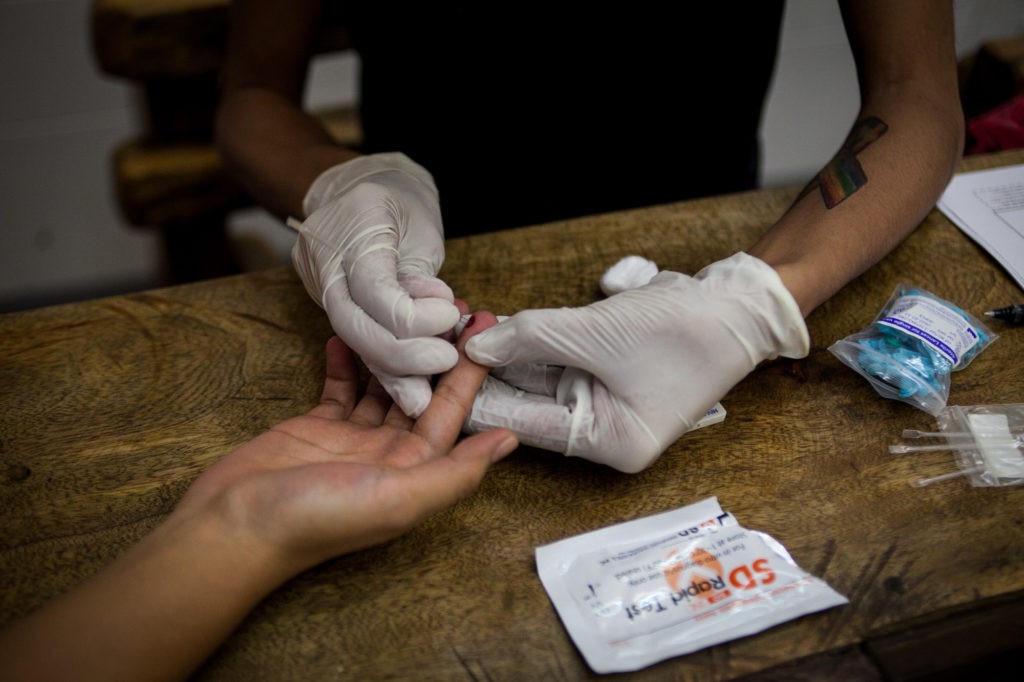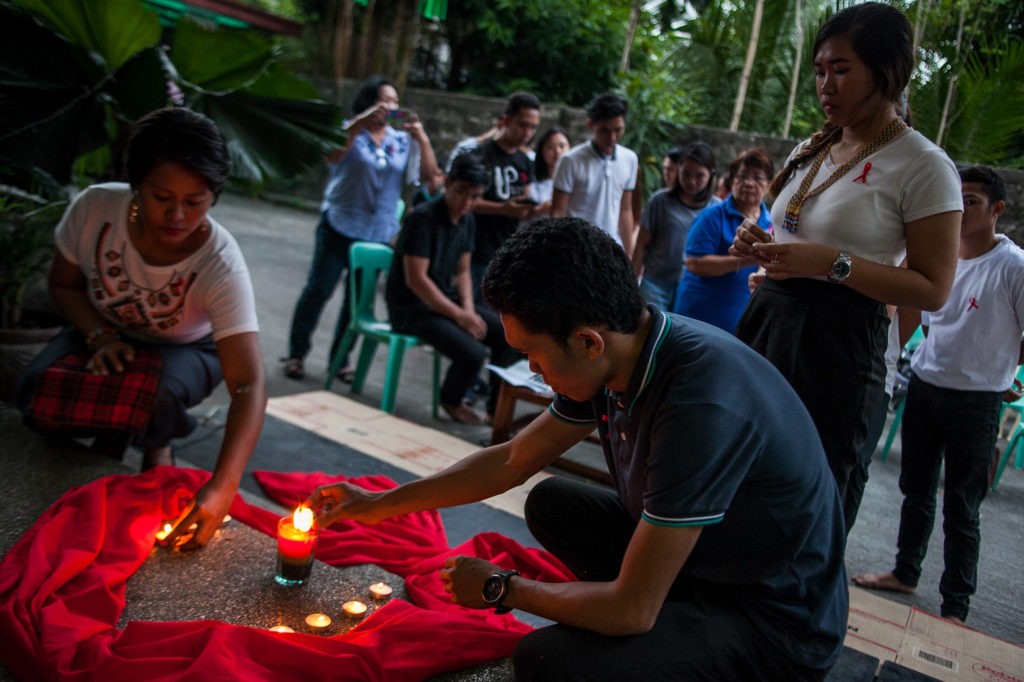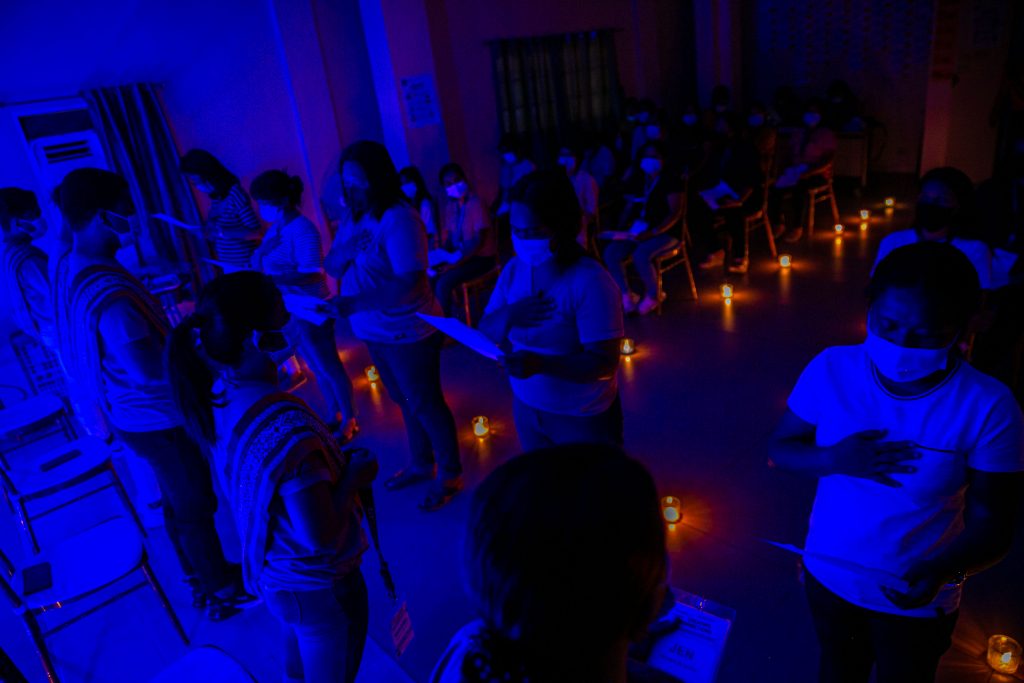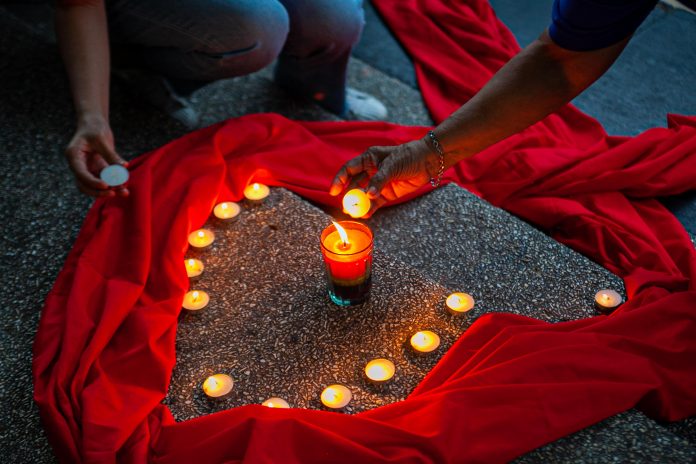There were no mourners when they buried her. There were no flowers and there was no coffin, only a black body bag. Patricia died just exactly how she lived – abandoned.
She was born out of wedlock. Patricia’s mother cast her aside when she was just a kid and grew up with her grandparents in Leyte province in the central Philippines.
She lived a life full of poverty, distress, and misfortune. Patricia became a mother when she was just 17 years old and the man who got her pregnant walked away from responsibilities.
A few months after giving birth, she and the child became sickly. The mother and child underwent different laboratory tests to determine the illness.
In 2018, they tested positive with HIV (human immunodeficiency virus).
Patricia was determined to fight and live for her child. She worked as part-time household help and did other labor to earn and send herself and the child to treatment.
But she lost everything that she worked for when the pandemic started in March 2020. She was forced to stop working and going out of the house because she was immunocompromised.
The pandemic also forced her to stop visiting the nearest HIV treatment hub, which is very far from where she lived, because of the lockdown and travel restrictions.
Their life in the pandemic was hard but endurable until she was diagnosed with pneumonia and a liver infection.
Patricia couldn’t afford the medication. Instead of buying the medicine, she used whatever money she had to feed her child.
She didn’t seek help from relatives and friends out of fear that they will be discriminated if she will reveal their condition.
Two months ago, Patricia’s health started to deteriorate. On May 8, she died on a hospital bed.
As of February 2021, there have been at least 4,719 Filipinos who died with HIV since the first case was reported in January 1984.
A total of 49,115 people living with HIV (PLHIV) were initiated on Antiretroviral Therapy as of February 2021, according to the health department’s HIV/AIDS & ART Registry of the Philippines (HARP).
However, some PLHIVs are struggling to access treatment due to lockdown restrictions and the lack of clear guidelines on how PLHIVs can seek medical services during the pandemic.

Based on the recent COVID-19 Rapid Gender Assessment Regional Highlights published by Oxfam Philippines in December 2020, a number of survey respondents in different regions cited “problematic access” to HIV/AIDS services.
“Sixty percent of women respondents from Bicol and CALABARZON, and more than a quarter from Samar also cited problematic access to STI, HIV/AIDS services. The majority of men respondents from Samar and BARMM cited problematic access to contraceptive supplies (76.19%) and STI, HIV/AIDS services (47.62%),” the study said.
The study also noted that some 87.71% of LGBTQIA+ respondents in Bicol, Samar, NCR, and CALABARZON experienced difficulty in accessing family planning services, STI, and HIV/AIDS prevention services.
Oxfam Philippines said the situation “might increase risks for contracting STIs and HIV/AIDS, as well as the incidence of gender-based violence in case of failed negotiations for safe sex practices between partners.”
“Furthermore, individuals with pre-existing medical conditions may not be able to access specific medical treatments that compromise their recovery during the pandemic given the limited access to specialized clinics,” it added.
Fight against stigma and discrimination
Protestant Pastor Carleen Nomorosa said “something more deadly” than HIV or the coronavirus disease is killing PLHIVs, apart from the “problematic access” to HIV services during the pandemic,
Nomorosa, HIV program coordinator of the National Council of Churches in the Philippines, said it was not HIV that killed Patricia but “discrimination and stigma.”
“She was too scared to reveal her condition. She didn’t even want to tell the hospital that she was HIV positive,” she said.
Patricia was discriminated against when she got pregnant at the age of 17. People called her names and even accused her of being too flirty and sexually provocative.
The discrimination became extreme when she told some of her friends and relatives that she was HIV positive.

This reality motivated Ella Niña Serito to explore the issues around gender and sexual rights and become an advocate.
She said she intends “not to change the world but to change how people perceive other people with different sexual preferences.”
“Fighting for a world free of judgment, discrimination, and stigma” has been her advocacy since she joined the Sexual Health and Empowerment (SHE) Project in 2019.
The 20-year-old college student is the youngest among eight siblings. Three of her brothers and one of her sisters are self-identifying gays and lesbians
“We have a colorful home,” she said. None of her siblings has HIV or experienced teenage pregnancy “but because of their gender preference they were bullied and discriminated against.”
“I know how difficult it was for my siblings who are members of the LGBTQIA+ community to come out of the closet because of the stigma. Now, I can only imagine the struggle of those PLHIVs and teenage mothers,” she said.
Serito is a “sexual, reproductive health, and rights” (SRHR) advocate and a training facilitator under the SHE Project, a program conducted by Oxfam Philippines and the Family Planning Organization of the Philippines (FPOP) in Samar and Northern Samar.
Serito admitted that she was hesitant to become a “peer educator,” who is tasked to help in spreading community awareness on SRHR issues including gender-based violence, HIV/AIDS, teenage pregnancy, and gender rights.
“But I realized that to be a ‘peer educator’ is my chance to make people understand how deadly and dangerous discrimination and stigma could become,” she said.

Since 2010, there are at least 50 transgender, gender nonbinary individuals who have been murdered in the Philippines.
Several LGBTQI and rights groups said the real death toll “is much likely higher” than the reported figures.
Leo Lauzon, FPOP’s project coordinator, said discrimination and stigma against PLHIVs, the LGBTQIA+ community, and other vulnerable sectors are “widespread and prevalent because of lack of understanding and proper information.”
“Our mission is to promote awareness on these issues surrounding the SRHR. We can stop discrimination and stigma – end the irrational hatred, intolerance, and fear if people are well-informed,” he said.
Lauzon explained that one good example of a “false belief” that leads to gender-based violence is the thought that “HIV is a gay disease.”
Acquired HIV through sexual contact remains highest in “males who have sex with males” but it does not mean that only gay people can be infected with or the only carrier of the disease.
In February, 97 percent of the total 855 new HIV cases reported were infected through sexual contact. There were five children who were infected through mother-to-child transmission and two cases who acquired HIV through sharing of infected needles.
Among the newly reported cases who had acquired HIV through sexual contact, 86 percent or 708 were males who have sex with males and followed by male-female sex at 14 percent or 120.
Gender-based violence during the pandemic
Gender-based violence (GBV) was the most frequently reported and perceived fear during the pandemic period, according to Oxfam’s COVID-19 Rapid Gender Assessment.
The report, however, said that while the data accounted for emerging fears on GBV concerns, the majority [of the survey respondents] “did not provide adequate responses to the spike of GBV” during the pandemic.
The report suggested that there was a “wide under-reporting of GBV” especially during the pandemic period.
From March 17 to June 11 last year, the country recorded some 4,260 violence against women and children (VAWC) cases – of which 88% was violence in intimate partner relationships, and more rape cases (739 children, 235 women).

The National Capital Region and the neighboring CALABARZON region are “identified among the top five regions with the highest incidence of GBV against women.”
April Ann Bulanadi, Oxfam’s policy, advocacy, and communications manager, said many of those who suffer from GBV are confined in their homes during the pandemic.
“A lot of women, children, LGBTQIA+, and PLHIVs are trapped with their oppressors at home during the pandemic because of the movement restrictions,” she said.
Bulanadi said the government must provide extra attention to ensure that SRHR services are accessible and available especially in poor communities.
She said one of the findings of Oxfam’s Rapid Gender Assessment was the “absence of a targeted and gender-responsive national approach to mitigate the effects of COVID-19.”
“Because of this, we are afraid that the interests of the most vulnerable sectors in our society are not served adequately during this global health crisis,” she said.
This story is commissioned by Oxfam Philippines









